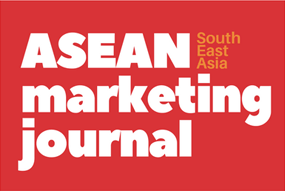
Abstract
Manuscript type: Research Article Research Aims: Telling a story about the past identity of a product is believed to help improve the positive perception towards the product. Certain product has gone through transformation from its past identity to new and more valuable product, known as upcycled product. This study aimed to investigate whether a simple narrative about repurposed products can generate higher perception of product biography, product appeal, felt specialness, and purchase intention of consumers. Design/methodology/approach: To test the hypotheses, a two-group between subject experiment involving 103 university students was conducted . Two upcycled products (pouch and bag) with simple narrative were used as stimulus. Research Findings: The result revealed that people who are aware of the past identity of the product perceived that the product has a story and feel more special, unique, and recognized if they use the product. Contrary to the previous research, this study found no difference in perception about product appeal and purchase intention between two groups. Theoretical Contribution/Originality: This research contribute in filling the gap of the impact of storytelling with simple narrative toward upcycled products especialy in Indonesia. Practitioner/Policy Implication: This study could provide some insights to business owners and marketers that building a story about the product or around the product can help build positive attitude toward the product and a simple or minimal narrative can function well. Research limitation/Implications: This research however has some limitations such as the variety of participants which limited to university students. Furthermore, this research did not take into account the prior knowledge and awareness of participants about repurposed products.
Recommended Citation
Mege, Stacia Reviany and Oematan, Grouse
(2021)
"REVEALING PAST IDENTITY OF UPCYCLED PRODUCTS: HOW SIMPLE NARRATIVE IMPROVE PRODUCT PERCEPTION,"
ASEAN Marketing Journal: Vol. 13:
No.
2, Article 6.
DOI: 10.21002/amj.v13i2.13544
Available at:
https://scholarhub.ui.ac.id/amj/vol13/iss2/6





